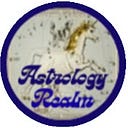Astrology Defined: Unveiling the Language of the Cosmos
This article may include affiliate links, which means that if you click on one and decide to purchase something, I may receive a commission at no extra cost to you.
(Human directed ai content.)
Introduction
Astrology is an ancient and intricate system that seeks to decipher the hidden meanings and influences of celestial bodies on human life and events. As a discipline that bridges the realms of science, art, and spirituality, astrology has captivated civilizations for millennia.
At its core, astrology is a symbolic language that interprets the positions and movements of planets, stars, and other celestial points to gain insight into personality traits, relationships, and life’s unfolding journey.
In this article, we will explore the definition of astrology, its historical roots, key principles, and how it continues to enrich our understanding of ourselves and the universe.
The Definition of Astrology
Astrology is the study and belief that the positions and movements of celestial bodies, such as planets, stars, and the Moon, have a meaningful influence on human life and events. It operates on the premise that there is a profound connection between the macrocosm of the universe and the microcosm of individual lives.
Astrologers interpret the configurations of celestial bodies at specific times, such as the moment of a person’s birth, to create a personalized cosmic map known as the birth chart or natal chart. This chart serves as a blueprint of an individual’s unique personality traits, strengths, challenges, and potential life path.
Historical Roots of Astrology
The origins of astrology can be traced back to ancient civilizations, including Mesopotamia, Egypt, India, and China. Early astronomers observed the movements of celestial bodies and their correlation with natural events and human behavior. These observations laid the foundation for the development of astrology as a system of divination and understanding of the cosmos.
In ancient times, astrology and astronomy were often intertwined, and the distinction between the two sciences was not as pronounced as it is today. However, over the centuries, astronomy became recognized as a separate empirical science, focusing on the study of celestial bodies and their physical properties, while astrology retained its focus on symbolism and interpretation.
Key Principles of Astrology
1. Zodiac Signs: Central to astrology are the twelve zodiac signs, each associated with a specific period of the year. These signs represent distinct personality traits and characteristics.
2. Planets and Celestial Bodies: Astrologers analyze the positions of planets and other celestial bodies in the birth chart to gain insights into a person’s personality, emotions, and experiences.
3. Aspects: Aspects are the angles formed between planets in the birth chart. They reveal the interactions and influences between different planetary energies.
4. Houses: The birth chart is divided into twelve houses, each representing different areas of life. The house positions of planets provide insights into various life themes and experiences.
5. Transits: Transits are the current positions of planets in the sky relative to an individual’s birth chart. They indicate the energies and opportunities available at a particular time.
Astrology Today
In the modern era, astrology continues to fascinate and inspire people across the globe. While some view astrology as a tool for self-awareness and personal growth, others use it to gain insights into specific areas of life, such as relationships, career, and health. Astrology has also found its place in popular culture and media, with horoscopes and astrological predictions being a common feature in newspapers and online platforms.
Criticism and Controversy
Astrology has faced criticism and skepticism from various quarters, with some dismissing it as a pseudoscience. Skeptics argue that astrology lacks empirical evidence and scientific validation. However, proponents of astrology maintain that its value lies in its symbolic and archetypal language, offering a lens through which individuals can explore their inner world and navigate life’s challenges.
Conclusion
Astrology is a captivating and multifaceted discipline that continues to intrigue and inspire people worldwide. It is a symbolic language that bridges the gap between the heavens and humanity, providing a unique perspective on the interconnectedness of the universe and our place within it.
Whether one views it as a guiding light or an ancient art, astrology’s enduring appeal lies in its capacity to enrich our understanding of ourselves and the vast cosmos in which we reside. Through astrology, we embark on a journey of self-discovery, finding meaning and guidance amidst the boundless wonders of the cosmos.
Read More…
“Astrology and Time Management: Organizing Your Life with Cosmic Wisdom”
LEGAL INFORMATION
Any links in this article, may be affiliate links. Using my links is free at no extra cost to you, and helps to support my channel. Information in
the articles is not business or investment advice, and these articles are created primarily for entertainment purpose. Thank you for your support!
